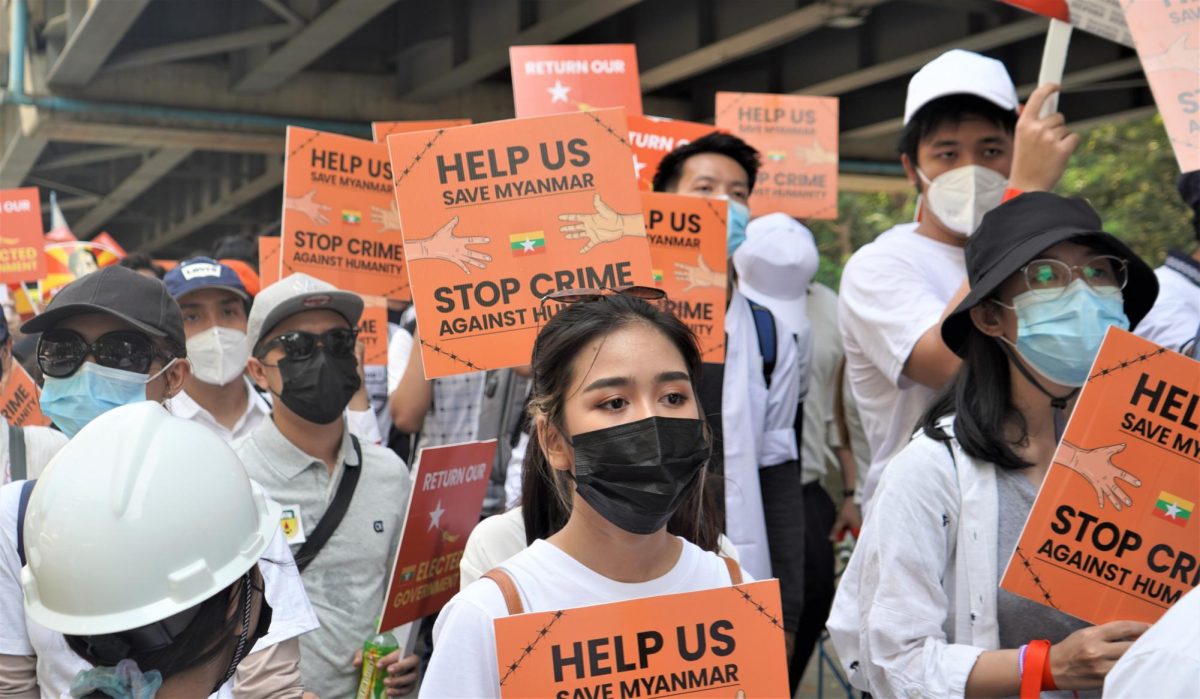This summer, an American academic traveled to Myanmar, hoping to learn more about the culture of one Myanmarist Fredrica Bunge in Burma, a Country Study, called as ancient as Buhdda (600 BC). In such an ancient nation, this expert should have been able to explore the rich customs, traditions and progress.
Instead, they were met with silence.
In the squares of Yangon, the nation’s capital, they were greeted by soldiers, standing on watch. They were met with the silence of the minority peoples – the Karen, Shan and Rohingya. These people under the gaze of guards whose purpose was to police their moment knew they had to stick to the quiet shadows of the country. Unfortunately, these experiences are not isolated, as Myanmar, a nation of ancient civilizations and religions, is not without its secrets and shameful acts.
History of an Evolving Nation
Myanmar has been settled for at least 8,000 years since the Early Bronze Age. The first state came about in the 100s AD, called Pyu, which would adopt the key ideal for Myanmar’s nationalists today – state-wide Buddhism.
The next state, Pagan, would expand into the totality of Myanmar’s current borders and spread Buddhism within them. This did not mean there were no other religions though, including Islam, Hinduism, folk religions and eventually Christianity, which would gain footholds in the nation as well.
This is a fact we should not forget, though such remembrance is not widely practiced by the powers that be in Myanmar.
Anthony Webster, when writing “Business and Empire: a Reassessment of the British Conquest of Burma” explained such a predicament, stating that we have to go back to colonialism. Starting in the late 1800s and ending in 1947, the British settled what they called Burma, by buying off local leaders, defeating Myanmar’s city-states in battle and reorganizing the nation whether they liked it or not. To run their colony, the British would follow a divide-and-conquer strategy, which would emphasize community and religious pluralism and independent rule.
As such, the majority of Myanmar’s citizens – who are Buddhists – lost influence in the fringes of their own country. Minority religions and ethnicities were given more autonomy to stop an anti-British coalition from ever forming. After World War II, the people of Myanmar in payment for their sacrifices demanded independence in payment for their sacrifices. By 1947, the British delivered.
Here and now: on the ground in Myanmar
Since then, there has been a struggle in the nation. Civilian governments have been using the military and the state bureaucracy to enforce a national ideal focusing on the majority ethnicity, Bamar and the largest religion in Myanmar, Buddhism.
Our source can confirm this claim, being that they witnessed the government demand separate spaces for non-Buddhists in the past. Since the military coup in 2021, extra physical measures have been taken. Our source mentioned strategic roadblocks and barbed wire laid extensively throughout the country to check movement and intimidate minorities.
The fight back: for worse and for better
Some of those impacted by the government’s anti-democratic actions have not stayed silent. For their part, the Karen, Rohingya and Shan have established guerilla forces in the Bengal, Thai and Chinese borderlands of the nation. According to the New York Times, they fight and kill radicals in the government in order to support a rival politics to that of the nationalists in Yangon.
Since 2021, the rebels have seen some success. They captured a military base and went on to hold a war of attrition against police, military and government personnel.
In response, the oppressive military has been ramping up. This year air strikes by the government and extra-judicial killings have risen at an astonishing rate, and as such, the military junta is committing intense war crimes against minority populations.
In the source’s opinion – during what appeared to be a tense atmosphere between the military and civilians – those who choose to fight “…have no chance to succeed in fighting the government. The path of violence won’t lead to victory”.
Sydnie Oakleaf ‘25, a Political Science major says now, after years of outside research, that the people of Myanmar are “under tight surveillance laws.”
Oakleaf added that the government is “definitely making the scope of the conflict more confusing to outside actors.”
She agreed with our expert’s testimony that such experiences are valuable as actual proof of what’s happening in the nation.
In terms of this conflict on the ground, one group offers what they believe is a glimpse of hope and a potential path to peace for the minority religions and ethnicities of Myanmar.
The expert says “In the capital, there is a beautiful Mosque and, due to its size and beauty, there is no way to really shut it down. Muslims exist and thrive there and show their beliefs in spite of the government.”
In their opinion, the more the minority folks simply live their lives outside of the shadows, the better the situation will be as the people of Myanmar see the humanity of what the government would consider ‘the other.’
So in such a dark time, the Mosque of Yangon stands in defiance of Myanmar’s nationalists and is a beacon of hope to see the religious and ethnic pluralism that could be in Myanmar.


